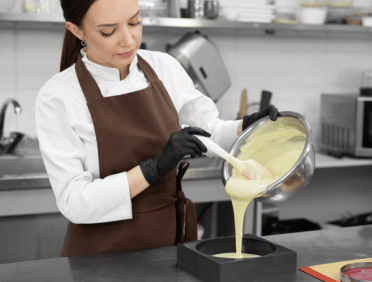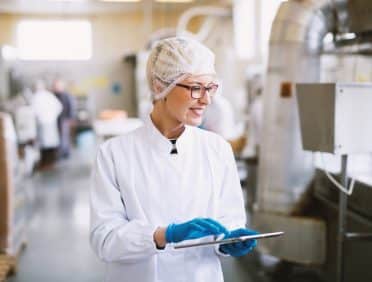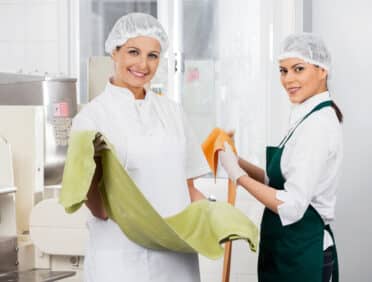It’s important to create food production which is sustainable, but it’s also important to have sustainable food and to recognise the impact food can have on the environment.
What is Food Sustainability?
So, let’s talk about sustainability. In a modern context, sustainability refers to the capacity of the Earth and the human race, and how the two can coexist in a peaceful fashion. Basically, sustainability is all about how we can meet our own needs as people without compromising the needs of future generations by diminishing the natural resources on the planet too early.
When we reframe that within the context of food sustainability, it’s not just about the food. It’s actually a combination of things that make up sustainability. It’s all about how the food is produced, packaged, distributed, and then consumed. Food sustainability is a term that has begun cropping up more and more in recent times.
Whilst it is always important to think about the planet, it’s become very popular at the moment amongst forward-thinking and environmentally aware people.
Why is Sustainable Food Important?
Generally speaking, participating in sustainable food practices is all about helping to ensure that your home or business has a lower environmental impact overall.
Sustainable food is all about helping to avoid damaged or wasted natural resources, because we want to preserve the planet. These kinds of foods help to minimise the contributions to climate change that we unwittingly create. Instead, the solution is all about eating more local foods which aren’t transported as far.
With the use of sustainable farming choices, there is a greater respect for biodiversity, as smaller, local farms will be able to produce a variety of fruits and vegetables for smaller scale orders, which will help to protect the land from overuse. It can also help create employment opportunities at the local level.
When it comes to sustainable food practices, both consumers and manufacturers have a role to play. Consumers need to make sure that they shop and eat in a more conscious, self-aware fashion. This means that they dispose of as little as possible, and when they do dispose of things, it is done in a considerate way.
The other end of the spectrum is that food production needs to have a larger responsibility when it comes to sustainable foods, working methods and packing. In the modern era, it is no longer just enough to try and drive customers with poor sustainability values and practices.
Thankfully, the bulk of brands do know this. There are many who don’t bother trying to light customers, but also a small percentage do by making sustainability claims that they think will look good. This is what we call greenwashing. While it is true that sustainability doesn’t have a legal definition in the context of businesses being able to use it, customers need to be wary of “sustainable” branding. Research should be done to identify the businesses that are real.
The Sustainable Food System
A sustainable food system is a specific kind of food system. It is one which provides healthy foods to people and helps to create a series of systems.
These systems are often bare in areas like economical, societal, and environmental. A sustainable food system will start by developing and using sustainable agricultural practices. Once it has done that, it will move on to develop more sustainable food distribution systems, which will help to not only reduce food waste through the system, but also has the benefit of building sustainable diets.
Sustainable Food Production
Sustainable food production is all about large scale production such as production lines and restaurants. There are many changes to sustainable practices which can be made.
Conserving water is an easy step to take. Considering that more than 70% of the freshwater on Earth is used for agriculture, it is important to try and use methods like wastewater recycling and drip irrigation.
Sustainable distribution can be done by cutting down on the distance the food has to travel. This is accomplished by trying to source food from local areas or at least keeping it within the country. If you’re in the UK and getting meats from Europe, this is massively impacting the sustainability of your foods.
Sustainable packaging is something which can be implemented at every level by businesses. The method you can take ranges from anything from reusing old materials to making new packaging entirely which is much more sustainable.
Overhauling food production processes to focus more on waste production can help a lot. Reworking products that are safe for human consumption and giving spare food to charities are useful, as is redirecting what can’t be given away.
Businesses should try and create a work environment where sustainability is encouraged, this means that staff need to really engage with the principles, and to promote them outside the company too.
Finally, it is recommended that you record the quantities of the waste being prosecuted, and to keep reports, so that the data can be properly measured and plans can be created to reduce waste.
Make Food Production More Sustainable
Making food production more sustainable is important because we have a rapidly growing population.
Future generations need something worth inheriting, and if we’ve burnt up all of the natural resources, then we don’t have anything left to give them.
Making Sustainable Food Choices?
Making sustainable food choices is easy if you know what to do – here’s some ideas.
Buy seasonal, local foods when you can. This means that you need to buy foods when they naturally come into season in the country you’re buying from. As an example, strawberries don’t come into season in the UK until the summer.
Try and source local ingredients if you’re a supplier, too. Serving seasonal vegetables and ingredients is a normal practice for restaurants.
You can reduce the amount of food waste that you create. This can take a range of forms, such as being more forward-thinking with meal prep and maybe purchasing ingredients that do not generate massive amounts of food waste. As a manufacturer, you should try and use sustainable packaging, and encourage your customers to use leftovers and recycle where they can.
Try and learn which brands are sustainable and purchase from them. If everyone buys from sustainable brands, those who are slow to change will do so to avoid losing all their customers.
Sustainable Eating Habits
Sustainable eating habits are fully possible with a little understanding and some sensible choices. Let’s look at some great ideas here.
Try to cook meals with seasonal ingredients wherever you can. Doing this helps to reduce the number of produce shipments that come from overseas because demand goes down.
In addition to vegetables and fruits, try to purchase local ingredients to use – things like local meats, dairy, grains and produce. It’ll make a lot of difference when it comes to cutting down on-road transportation and overseas transportation.
Where possible, try to cook with less meat and dairy. Plant-based substitutes are on the rise and are often just as good. The BBC suggests that 60% of all greenhouse gas emissions come from meat farming.
How to Incorporate Sustainable Food Into Your Diet
Sustainable food is a core part of any diet, and implementing it doesn’t need to be difficult. The main strategy to keep in mind is to be sustainable with your sustainability. It’s all well and good to announce you’ll only buy from a farmers market, or that you’ll only ever go organic, but this is expensive and difficult to do on a long-term basis. The best thing you can do is make small, sustainable changes over the long-term.
It’s important to acknowledge that environmentally sustainable food packaging is a core part of sustainable foods. Obviously, any packaging that is going to be environmentally sustainable has to meet certain criteria. It has to be constructed for materials which can either be recycled or biodegrade naturally. The method for producing these materials has to be in a sustainable fashion. It’s important to be able to spot sustainable packaging.
Reduction of Food Waste
The reduction of food waste is an important part of sustainable foods.
There are a handful of ways you can do this. Some good methods include things like taking the time to start a compost heap, needing to be more environmentally aware with recipes that make use of as much of the food as possible, or to consider a food disposal unit which will grind up food waste, and then send the waste to a water treatment plant where it can be recycled and reused.
LearnQ Offers Training
LearnQ offers full training in sustainable food production for you and your company. Consumers are becoming much more aware of the need for environmentally-friendly and sustainable foods, which is why they are much more discerning and expectant of companies to do so. Therefore, LearnQ is committed to providing full training and making sure that your team is aware of how to promote sustainable food practices.
To download a .pdf of this blog, please click here












